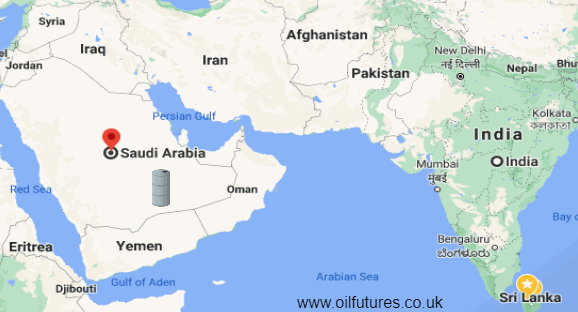There is a growing rift between India, the world’s third
biggest oil importer – and consumer – and Saudi Arabia over the supply of crude
oil to the global markets.
India maintains that the unilateral cut of 1 million
bpd by Saudi Arabia, in addition to what was agreed by the OPEC+, is ‘artificial’
and is causing a major headache for its economy, when it is on the path to
recovery, having seen the worst slump in 70 years.
When India’s position attracted the global attention,
especially by the consumers, Saudi Arabia hit back by asking India to use its
vast oil reserves, filled up by buying on the cheap during the pandemic at
rock-bottom prices.
Saudi response has not gone down very well in New
Delhi: The Times of India reports that the Indian authorities had requested the
government-owned refineries to look for alternative supplies, away from the
Middle East; since they account for 60% of the crude oil handling, the move, if
executed as intended, will be quite significant.
With that, the news source says a quarter of the
supply from the kingdom may be cut down in May; nearly 80% of India’s oil supply
is from the Middle East.
India’s agitation against production cuts does not
seem to be a passive threat: the crude oil supply from the Middle East did
plummet by 22% in February; the US has become the second largest oil supplier
to India with Iraq still maintaining the top position.
Although some Asian nations have been hit due to
Saudi production cuts, India has not been affected so far.
The impact on Saudi coffers after losing a major customer
will be significant too, if the proposed ‘diversification of sources’ goes
ahead in the same form.
As for India, its exports to Saudi Arabia were just $5.4
billion in 2017-18. During the same period, the latter made $22 billion with
its imports, mainly crude oil. In short, there is a significant trade gap in
favour of Saudi Arabia.
In order to address the issue, Mohamed bin Salman,
the Saudi Crown Prince, has already promised to invest $100 billion in India. If
relations turn sour over the oil supply issue, things may not happen as being
promised.
Although the supply of oil is a bone of contention,
analysts believe there will be an amicable solution in the coming months
between the two countries, as the two countries have been strong allies in the
past.
One possibility is that the Saudis may not extend
the production cut beyond April while addressing the concerns of its Asian
customers.
For it to happen, the oil price will have to stay at
least at the current level so that the producers as a whole can breathe a collective
sigh of relief while pleasing the existing customers.







